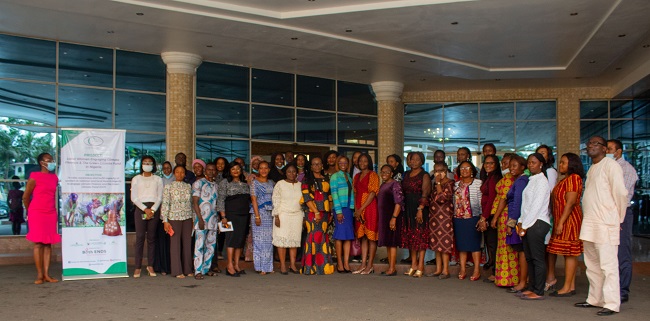A step-by-step procedure for accessing climate change finance was the focus of the second day of a two-day training on Friday, October 16, 2020 organised by the Centre for 21st Century Issues and Both Ends, in partnership with the Department of Climate Change (DCC) of the Federal Ministry of Environment, Lagos State Government’s Ministry of Environment and Water Resources, and Natural Eco Capital Limited.

During the event tagged “Climate Finance and Green Climate Fund for Women in Nigeria” in Abuja, Titilope Ngozi Akosa, the Executive Director of Centre for 21st Century Issues during an interactive session highlighted key aspects of accessing finance from the Green Climate Fund (GCF).
She equally reiterated the need for more women to get involved, even as she highlighted some specific areas of the GCF proposal guideline they should be responsive to when preparing proposals for submissions to the National Designated Authority (NDA).
As a part of a panel session that climaxed the training, Mrs. Benedict Ejiofor, the GCF Desk Officer at the DCC, highlighted a couple of projects being carried out by the Ministry.
According to her, “The Ministry is currently carrying out projects that have adequate women inclusion. We encourage the establishment of more women groups and welcome them to liaise with the relevant MDAs that are working on Green Bond projects.”
Mrs. Ejiofor also made it clear that women could find entry points from the already existing projects.
Similarly, Mrs Oluwabusola Ajibola, the Gender Desk Officer of the DCC, assured participants of gender inclusion in every project approved by the Federal Ministry of Environment. She regretted the gap that had been created over time in environmental and climate change projects. She called on women to bridge the gap.
Another resource person, Mrs Hannah Kalu, representing the Federal Ministry of Agriculture, assured participants that the Ministry of Agriculture has spelt out a framework for inclusion of women and youth in every aspect of their projects.
“Due to the direct effect of climate change on the environment, and thus on agriculture, women, resilience and project innovations in the agricultural sector play a vital part. We know that women make up an increased number of subsistence farmers, climate issues affect them more.”
She also called for more women to join cooperatives as it gets them more involved.
Mr. Bayo Adekoje of the National Adaptation Strategy and Plan of Action on Climate Change in Nigeria (NASPA-CCN) assured the participants that the NASPA-CCN makes provision for women inclusion.
He explained the provision made for women participation in overseeing committees and working groups, which he said would be launched in the future.
By Azeh Praise, Abuja
